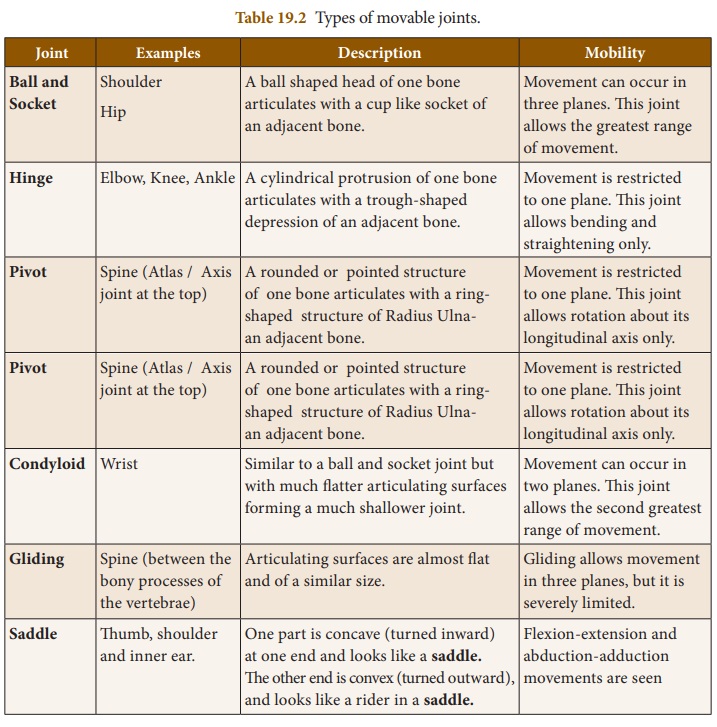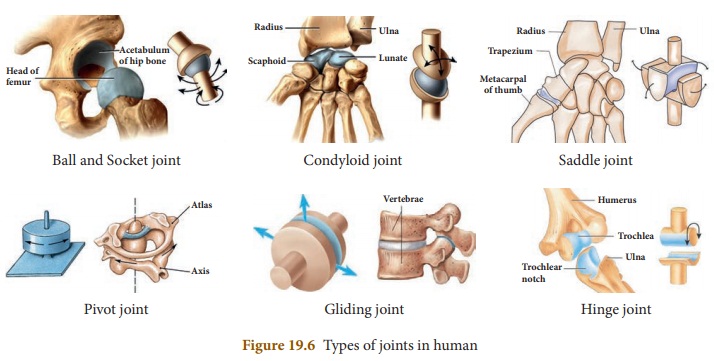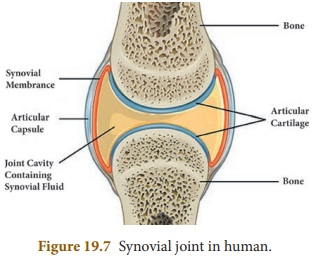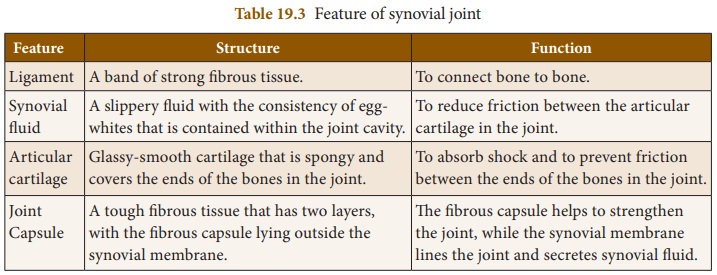Movements in Animals | Chapter 19 | 8th Science - Joints | 8th Science : Chapter 19 : Movements in Animals
Chapter: 8th Science : Chapter 19 : Movements in Animals
Joints
Joints
The point at which two separate
bones meet is called a joint. Depending on the type of movement they allow,
joints can be of three types: fixed, slightly movable and movable joints.
Fixed or Immovable
joints
In this type of joint no movement is
possible between the two bones. The structures between the bones of the skull
box are examples of immoveable joints.
Slightly movable
joints
Here, only very little (partial)
movement occurs between the two bones. The joint between a rib and the breast
bone or between the vertebrae is the example for slightly movable joint.
Joints are the place where
two bones meet or connect. Ligaments are short bands of tough fibrous
connective tissues that function to connect one bone to another, forming the
joint. Tendons are made of elastic tissues and they also play a key role in the
functioning of joints.
Freely movable joints
In this type, varying degree of
movements is possible between the two bones forming the joint. There are six
major types of movable joints. They are given below in Table 19.2.


Synovial joints
A synovial joint is a joint which
makes connection between two bones consisting of a cartilage lined cavity
filled with fluid, which is known as a
diarthrosis joint. These are the most flexible type of joint between bones,
because the bones are not physically connected and can move more freely in
relation to each other.

Synovial joints have four main
distinguishing features. They are shown in Table 19.3.

Inflammation of joints is a condition that usually results either due to friction of articulating cartilage or due to lack of synovial fluid in the joint. During this condition, the person feels acute pain in joints particularly while moving joints. This disease is referred to as arthritis. Arthritis is however also caused due to the deposition of uric acid crystals in the joints.
Related Topics